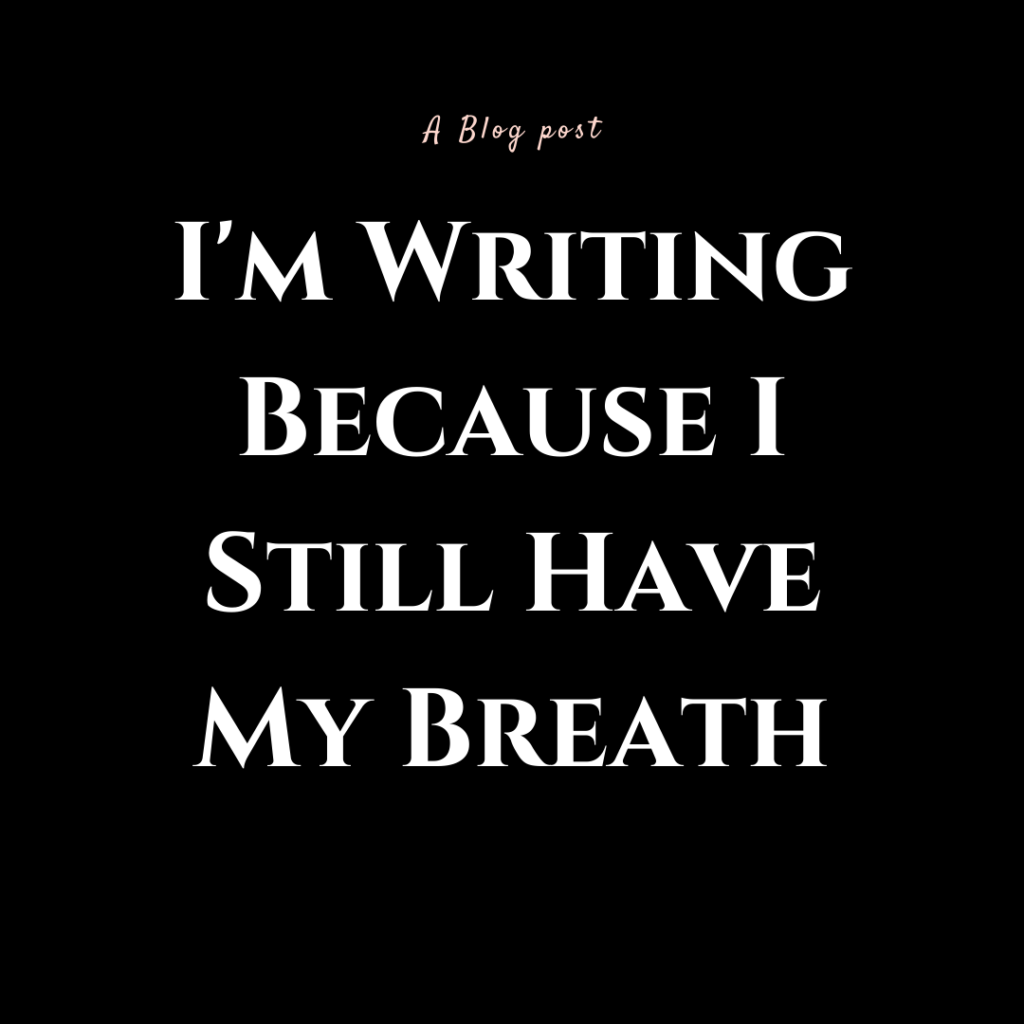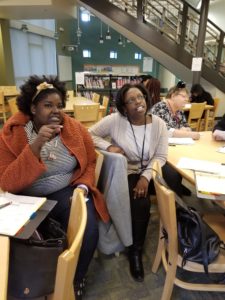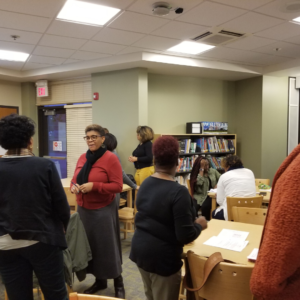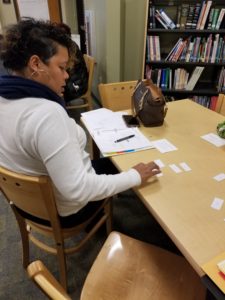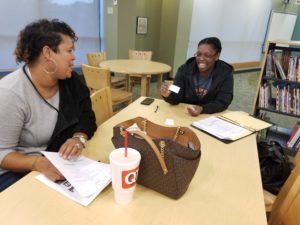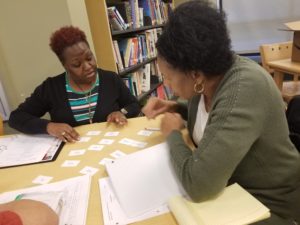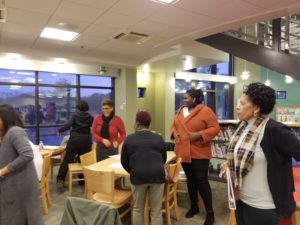Nearly each moment each day, I have thoughts and words swirling in my head surrounding the covid epidemic, its outsized impact on the black community, the lynching of George Floyd in a long train of murders of or threats to peaceful and unarmed black men at the hands of white police and white people.
When I opened this post, my mind went silent. Where to start? What are the most important points to say, especially when I am no expert? This is bigger than my ability with words.
In a nut shell, it is: Black Lives Matter.
Another moment of silence in my mind … what else to say?
I have no expectation that any person of color read this. I know that people of color are so. so. tired.
Discussions of racism are happening in just about every venue right now. It is a lot to bear and a lot to process, especially when you are also living it. But it is those of us who are white who have a responsibility to continue through the tiredness.
It is clear. There is a great and deep hurting in our country right now. And the thing that is hitting me right in the heart, and weighs on my mind these days is that it is not “right now”. It is a hurt that is centuries old. The thing is, I have always gotten to turn off the hurt and distract myself with other things, because … well, I am white. Racism doesn’t follow me like my shadow.
A couple days ago my husband went out for a run. I said, “Bye! Love you!” barely even turning away from the sink of sudsy dishes in front of me. As I heard the door shut, it occurred to me that I just let him go without a thought. No concern for his safety. No doubt that he would return in less than an hour, sweaty and gross, and I would get to hug him again. But if his skin contained more melanin, that split-moment experience of him walking out the door would have been so very different.
To help me express myself, I am going to quote some influential voices in my world over the last few days, as they have been important to my processing of “the whole thing”.
Let us always start with the children
One co-worker described her 8-year-old son watching the video of the officer on George Floyd’s neck turning to look up at her and asking:
“But Mommy … I thought they were supposed to protect us?”
A dear friend described her 12-year-old walking into the room:
“Mommy, did you hear about the man who died when a police office kneeled on his neck?”
And she describes how plans to attend a protest were set aside when both her sons were too scared to go or to let her go without them, how her 17-year-old, when asked how he is feeling, answers:
“I hope I can stay alive and not die.”
I don’t have anything to say about these quotes, because I think am still just feeling them.
Just a Little Bit
A co-worker said to me yesterday, “I wish white people would, for just a moment, feel just a little bit of what we feel”.
This reminded me of a conversation I had with my mother-in-law just a couple days prior. It was a discussion of those intense moments of emotion. The experience of empathy with the family members who have lost their dads, sons, brothers. And that is shortly followed by the realization that that feeling in my whole body … is just a fraction. It is just a moment. And to imagine that level of grief, pain, and exhaustion on the level that the black community has born it … it is enough to bowl you over. (And we are seeing that indeed, it will bowl you over.)
It is those moments, in part, that cue me to remember that as exhausted and sad as I am, my neighbors, friends and co-workers of color are far more exhausted by many degrees. And thus, it is my responsibility to stay in the grief and search for wisdom … push for more strength … open my heart and mind and listen while also stepping up and speaking out.
A Beauty Contest
My step-mom said once, “If people worked on how they look on the inside as much as they work on how they look on the outside the world would be a much different place”.
My mode of operation for as long as I can remember is to jump into action. To fix a problem. To find a solution. I know that among the activist community in particular, that is a common reflex.
It is a useful reflex.
BUT. This moment is begging those of us who are white to take action (definitely), but not only that. This is a call to also introspect.
It is important to me that moving forward, I not only take action that can be seen from the outside (attending protests, changing my social media profile picture to say “Black Lives Matter”, posting on social media, donating to the cause, writing blog posts), but that I also take the kind of action that is seen by no one but myself:
To read books. Listen to podcasts. Journal. Observe emotions. Ask myself questions like, “Why have I been silent many times when I could have been vocal? In what ways am I complicit with systemic racism? What racism have I NOT seen because I walk around in a white body? How do I take action, not just this week, but after the everyday distractions creep in?”
I am committed, moving forward, to examine how I look on the inside and to work on it in addition to what I do on the outside.
By starting with the invisible work, I will have more strength in my actions. If we all do the invisible work, the movement for change will be stronger and long-lasting.
Holy Breath
I had the great privilege of being what is called the worship assistant for my church’s service this past Sunday, centering on the black lives that have been lost to white violence and coronavirus as a result of systemic racism. I don’t often share about church outside of church because of the loaded nature of sharing religion. Yet this is a service I feel compelled to share.
Our ministor, Rev. Kim Mason, said:
One of the things I learned in seminary is that the Hebrew alphabet has no vowels. .. imagine if you did a translation from Hebrew to English, skipped the vowels and used only consonants. The Jewish name for God, Yahweh, Y-A-H-W-E-H, becomes simply Y-H-W-H. Now try and say that. Go ahead… What does it sound like? It sounds like breath. So too, the Hebrew word in the Bible for the Holy spirit is “ruach”, breath.
Consider what it means that the word for Holy Spirit is breath. Each living thing breathes. It is breath that connects us, it is breath that keeps us alive. The holy, the divine, is the breath of life within us.
The irony is not lost on me that in the midst of a worldwide outbreak of a viral respiratory illness we are witnessing the breath being forced out of people of color through violence ….
When the breath of life is cut off through violence, through generations of trauma, through systems of oppression, then the holy has been denied. When the breath of life that connects us all is denied, then none of us can breathe.
I have thought about these words a lot.
I have a meditation practice that has given me great peace, greater emotional capacity in my daily life, and significant health benefits. My meditation practice is the kind where you place your attention on your breath … and bring your attention back to your breath repeatedly as you notice your mind wandering. Since this service, my daily meditation practice has deepened even further into a ritual of honoring the breath, the holy spirit, the mysterious depth in each of us, and a way to honor and grieve those whose breath has been stolen from them.
Just say something. And also, do something.
Two other quotes from multiple co-workers … different, but akin to each other:
“I just want white people to SAY something. Even if you don’t agree, just SAY it. Take a STAND.”
and
“I’m tired of all these meetings led by white people who start off by saying they feel it is important to acknowledge what is happening right now, and then quickly move along to the agenda. What I want them to say after acknowledging it is — what are YOU actually going to DO about it?”
My reflections and take-aways from hearing these are:
Speak and lean in. There have been times when I have remained silent for fear of saying the “wrong” thing, of hurting someone, annoying someone, being misunderstood. But despite these fears, it remains: I still need to say something. And I remind myself that I will make mistakes. I will say things that are ignorant or incorrect and I will (hopefully) get corrected, and there may be a sting that comes with that. Oh, well. As I saw someone state so well in a Facebook group today … the conversation makes us uncomfortable, not unsafe.
I can either look at that at a burden that is my responsibility to bear in order to do my part or I can look at it as an opportunity to learn and grow into the person that I want to be.
Either way, it doesn’t change what is the right thing to do.
I am NOT saying that I should speak out recklessly or without thought or consideration. I want to come from a place of thoughtfulness and humility as much as possible, but not so caught up in analysis or fear that I don’t speak at all.
Do, and share out. Words are necessary, but alone they are insufficient. I will work on exploring ways to take action, and to share those actions when appropriate because it has been asked of me to do so. And maybe if more of us who are white take action and share out, we could get ideas from each other and help each other do better over time, not merely until the news moves on.
So, in that spirit, here is what I am doing:
- First and foremost, I am seeking to show love and care for those in my circles of trust who are Black. To do for them what is helpful and welcome. No matter how politically active I get, if I ignore those who I love, the rest seems empty.
- Listening to an incredible podcast called, “Doing Our Work”. I highly recommend this podcast to those of you who like to listen, as I do. Episode 1 alone blew my mind I can’t tell you how many times.
- Reading “White Fragility” and joining a book club of white women educators to discuss our reflections. (I am grateful to another white woman for the invitation.)
- Seeking to process thoughts and emotions by writing this very post. I don’t know how it comes across to you, the reader, but I believe it is helpful to me.
- Organizing a small group of friends to become notaries so we can help those who need to mail in ballots (given that notaries are scant in our city, and difficult to access even when you have privilege, but far harder when you don’t).
- Posting and encouraging the sharing of turbovote.org for 17.5-year-olds and older who are not yet registered to vote.
- Showing up to a weekly silent protest in my city every Saturday in June.
- Having conversations with friends, both white and black. Conversations are magic, and I am letting them do their magic.
- In addition to personal funds, donating 100% of revenue from My Bilingual Heart from June and July to the client’s choice of: the NAACP, Campaign Zero, or the black protestor bail funds for their local area (this is the link to the fund in my state). (Some people run marathons to raise money, some people walk many miles in a colored t-shirt to fundraise. I figured, why can’t I teach Spanish to do the same?)
I am open to additional ideas, and am curious to hear what others are thinking. What are you doing? Do you have pushes for me? Would you just like to talk? I’m here.

